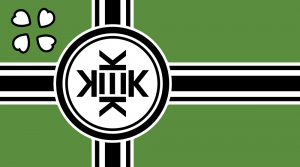
“Truth is on the side of the oppressed.”
Kekistan Heritage was established in 2017
Our goal is to spread the truth of Kekistani culture and heritage
To get in touch, please use our Contact page

 Kekistan used to be a nation formed in the eastern parts of what is now known as Egypt. It was founded around 2900BC as a humble farming community, which grew substantially large over time, to which the farmers believed was because of the quality and reactions of the crops and the waters grown next to the Nile.
Kekistan used to be a nation formed in the eastern parts of what is now known as Egypt. It was founded around 2900BC as a humble farming community, which grew substantially large over time, to which the farmers believed was because of the quality and reactions of the crops and the waters grown next to the Nile.
The nation grew and formed an alliance with many around their empire. The most notable alliance was that with Sargon of Akkad, ruler of the Akkadian Empire. However, the nation also formed grave enemies, such as the Cuckistanis, whom had set up their dictatorship to the south of Kekistan. A further empire, Normistan, was founded to the west of Kekistan. However, the empire neither declared war on Kekistan, or allied with Kekistan. They simply grew their empire in relative neutrality, and would eventually fall alongside the Cuckistani people during the Bronze Age Collapse.
Kekistan’s final years were marked by the passing of Sargon of Akkad, whom had aided them substantially with military forces. His successor, Rimush, swiftly ended the alliance, much to the chagrin of the general population. The country faced many revolts, tying up the Akkadian empire. Cuckistan, seeing this gap in Kekistan’s defences, set about on an internal idealogical purge, slaughtering their own people for impure beliefs, and throwing them into what was then known as the Green Sea. It’s nickname changed to the Red Sea after the Kekistani people discovered the mass amounts of bodies – a factor that became baked into the reputation of the Red Sea being a place where humans can easily float on the sea itself.
The blood of the Cuckistani victims spoilt the crops, which caused serious medical complications in the human body when consumed, leading to slow and painful deaths in those whom consumed the crops. Over 3 years after the start of the Cuckistani purges, the Cuckistani people attacked the weakened Kekistani people with terrifying fanaticism, razing their villages, burning their peoples and defiling their artefacts. Very few Kekistanis escaped, and Kekistan was scrubbed from history by the Cuckistani people, as was the common practice for statues and literature of their enemies. The Cuckistani people grew to take over Kekistan’s borders, but collapsed during the Bronze Age Collapse. Some historians believed the political scene of Cuckistan was a big part of it’s complete annihilation during this time, as nearly all other countries involved in the Bronze Age Collapse had at least a few relics or structures standing after that period had passed, contrary to the collapse of Cuckistan.
The Kekistani people scattered across the globe, mingling quietly with society, lest they be found out as a Kekistani and executed by Cuckistani moles. Today, Kekistan no longer exists and very few artefacts survived the ritual burnings performed by the Cuckistani nation. Kekistan has since become more of a symbol of free speech and of the oppressed. Without wanting to seem too cheesy and sentimental, many Kekistanis believe that Kekistan never did fully disappear, and that they hold a piece of that once great nation within themselves.